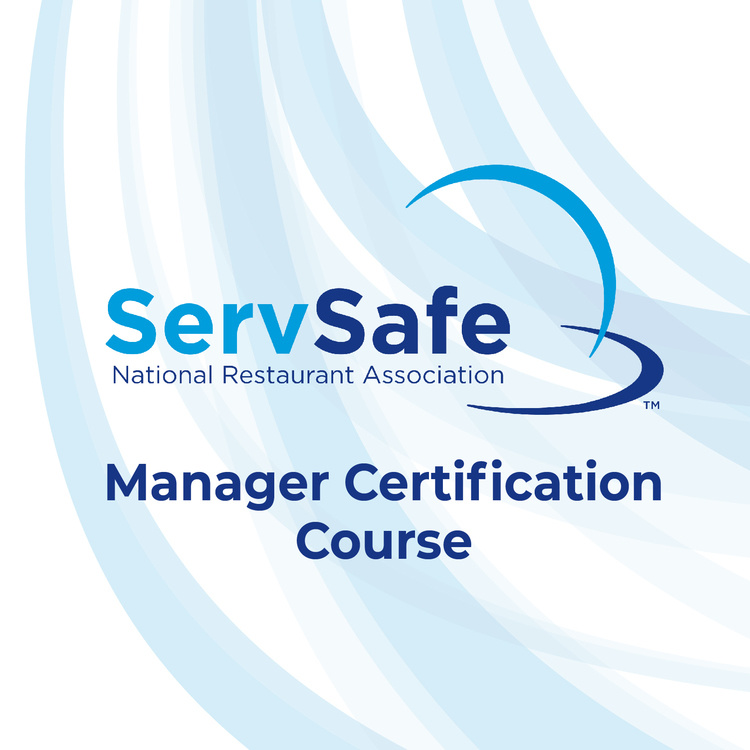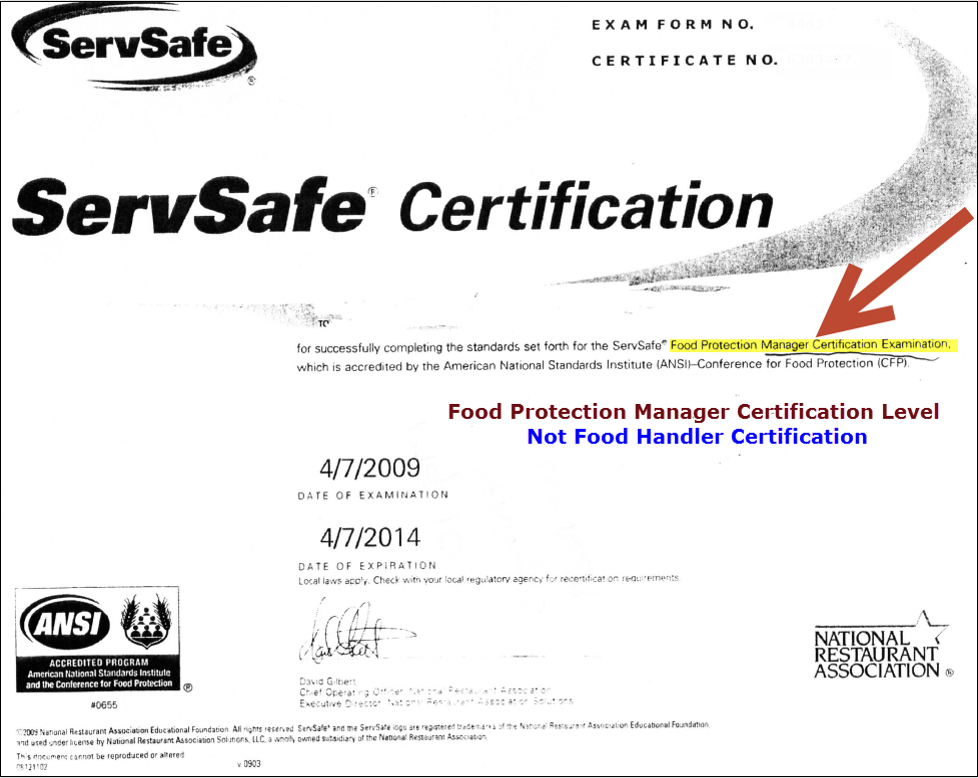The Significance of Safe Serve Manager Certification for Dining Establishment Leadership
The Significance of Safe Serve Manager Certification for Dining Establishment Leadership
Blog Article
Professional Training for Food Supervisor Certification Made Simple
The relevance of food supervisor qualification can not be underrated, particularly in a period where food security is extremely important. Specialist training programs have progressed to enhance the qualification process, providing crucial knowledge and useful abilities necessary for efficient food monitoring. These programs cover crucial subjects, from foodborne ailment prevention to conformity with wellness guidelines. The real worth of this training extends beyond simple certification; it has extensive ramifications for profession advancement and public health. Understanding just how these aspects interconnect may disclose possibilities that are typically neglected.
Value of Food Manager Accreditation
The significance of Food Supervisor Certification can not be overstated in today's food service sector. This accreditation indicates that food supervisors possess the important expertise and skills to make certain food security, maintain health criteria, and maintain regulative conformity. In an era where foodborne health problems can have severe effects, the function of a certified food manager becomes critical in securing public wellness.
Food Supervisor Accreditation not only outfits people with the knowledge to mitigate and identify food safety threats yet likewise boosts the trustworthiness of the establishment. Customers are progressively critical; they seek assurance that their dining experience is hygienic and secure. Qualification acts as a mark of professionalism and trust that can attract and retain clients.
In addition, a certified food supervisor can lead personnel training, promoting a culture of security and accountability within the office (ServSafe Food Manager Certification). Investing in Food Manager Accreditation is an investment in high quality, security, and the total success of food solution operations.
Overview of Expert Training Programs
Specialist training programs for food supervisor qualification are designed to offer comprehensive education and learning on food security techniques, governing conformity, and danger administration. These programs aim to equip food service experts with the knowledge and abilities needed to ensure safe food handling and prep work in various settings, consisting of restaurants, providing services, and institutional food operations.
Usually, professional training programs incorporate both theoretical and sensible parts, enabling individuals to engage with real-world circumstances. The educational program often includes crucial subjects such as foodborne illnesses, appropriate food storage space techniques, sanitation methods, and employee training techniques. These programs are often upgraded to align with the newest industry criteria and laws, making certain that individuals receive existing and appropriate information.
Several programs use adaptable delivery approaches, including in-person courses, on-line training courses, or a hybrid approach, accommodating different knowing choices and routines. Upon effective conclusion, participants generally obtain certification, which is typically recognized by local health and wellness divisions and governing agencies, enhancing their career prospects within the food solution industry. Generally, expert training programs play an important function in fostering a society of food security and conformity among food managers and staff.
Secret Topics Covered in Training
Food security is an essential focus in food manager accreditation training, including a range of important topics that ensure individuals are well-equipped to manage food securely. Among the key subjects covered is the significance of personal health, which consists of proper handwashing methods and the significance of preserving cleanliness in cooking areas.
In addition, the training addresses foodborne illnesses, detailing the numerous microorganisms that can pollute food and the symptoms related to these illnesses. Participants discover the conditions that promote bacterial development, which is crucial for avoiding outbreaks.
Temperature control is one more essential topic, stressing the safe food preparation, cooling, and storage temperatures required to decrease risks. The training likewise covers cross-contamination avoidance strategies, making certain that raw and cooked foods are managed properly to prevent harmful communications.
Additionally, food security policies and guidelines, such as those set forth by the FDA and regional wellness divisions, are discussed to provide a thorough understanding of compliance demands. Reliable bug control measures are analyzed to protect food establishments from problems that can endanger safety and security. Collectively, these subjects lay a strong foundation for risk-free food monitoring techniques.
Benefits of Specialist Training
Exactly how can expert training improve food security methods within an establishment? Professional training furnishes food supervisors with extensive expertise of food safety policies, industry standards, and best methods. This fundamental understanding is vital for preserving a risk-free and clean food preparation atmosphere, inevitably minimizing the danger of foodborne health problems.
In addition, professional training cultivates a positive method to food security by stressing safety nets and risk evaluation. Managers educated by market experts can efficiently recognize potential find more info threats and carry out approaches to minimize them. This not just shields customers however additionally enhances the establishment's credibility and reliability.
Furthermore, expert training motivates a culture of constant improvement. Food managers who participate in ongoing education are better prepared to adjust to new laws and fads in the food service industry. This flexibility can cause boosted functional performance and price financial savings.


Steps to Accomplish Qualification
Achieving certification in food administration needs a systematic method that incorporates a number of crucial steps. People have to choose a recognized training program that uses comprehensive coursework in food cleanliness, administration, and safety principles - ServSafe Manager. These programs browse around this web-site frequently give beneficial resources, including study materials and technique exams
Following, candidates ought to actively engage in the training sessions, whether in-person or on-line, to improve their understanding of essential subjects such as foodborne ailments, individual health, and appropriate food storage strategies. Involvement in discussions and practical exercises can additionally enhance learning.

When effectively prepared, prospects can take the examination and set up. Effective completion commonly requires attaining a specific passing rating, which shows a detailed understanding of food safety and security criteria.
Verdict
In summary, professional training for food manager certification plays an essential function in making certain food safety and conformity with governing requirements. Eventually, accomplishing food supervisor qualification via specialist training not just elevates private competencies however likewise fosters a more secure food setting for click to read more all.

Professional training equips food supervisors with detailed expertise of food safety regulations, sector requirements, and finest methods.In summary, expert training for food manager qualification plays a crucial role in making certain food security and conformity with regulatory criteria (ServSafe Manager Certification). Ultimately, achieving food supervisor qualification through specialist training not just elevates private expertises however likewise fosters a much safer food environment for all
Report this page